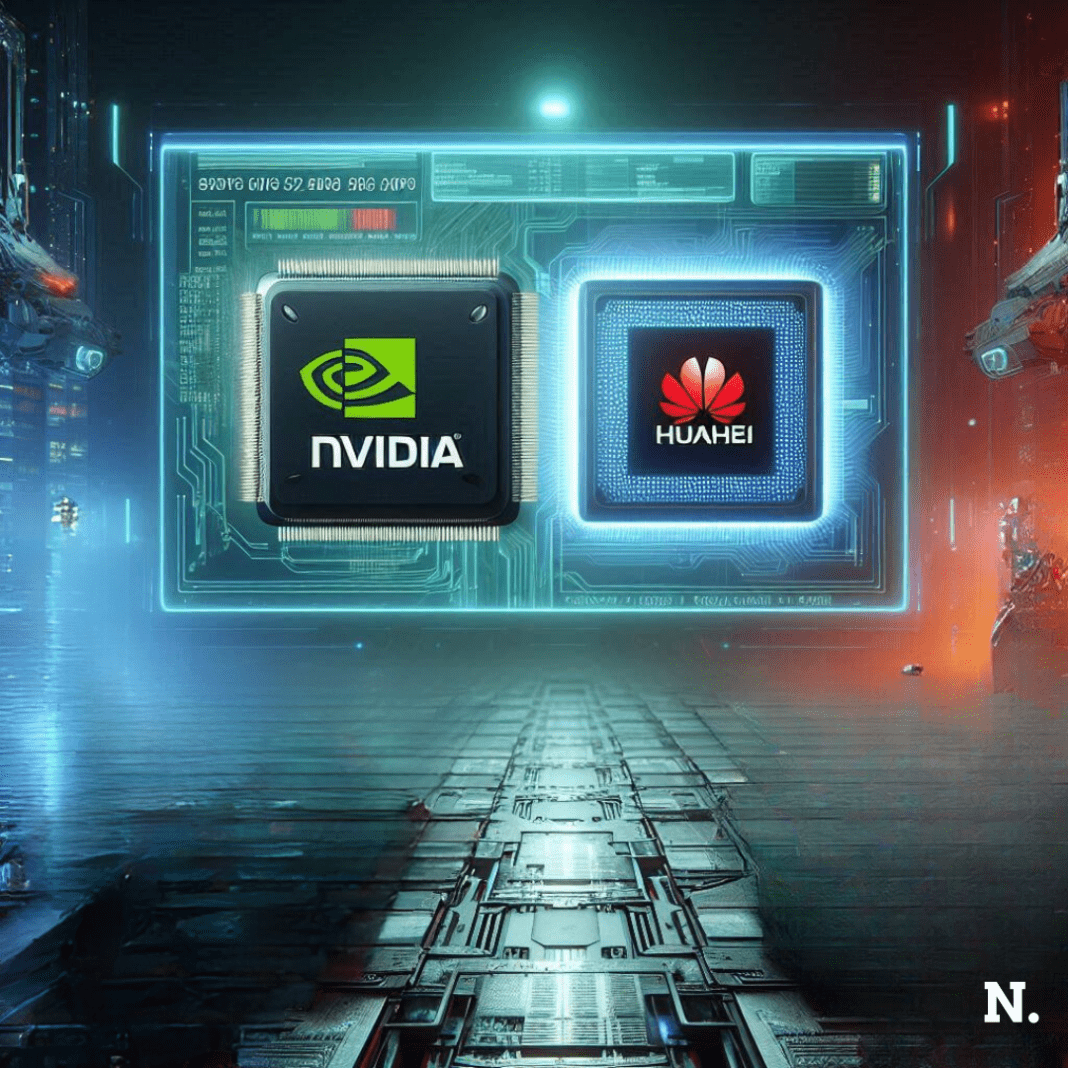Nvidia’s Rapid Rise and Sudden Challenges
In 2023, Nvidia was the uncontested leader in China’s AI chip market. The company controlled an impressive 90% of the market, with $7 billion in sales. Its cutting-edge AI chips powered everything from advanced data centers to the latest gaming technology. However, just a year later, the landscape has shifted dramatically, with Nvidia now lowering prices to compete with Huawei in China. The shift came fast, leaving many wondering: what went wrong?
Nvidia’s dominance in China’s AI chip market was built on its high-performance graphics cards, which also served as the backbone for artificial intelligence (AI) applications. These chips were critical in supporting large language models (LLMs), the foundation of revolutionary technologies like Generalised Pretrained Transformers (GPTs). Yet, Nvidia’s firm grasp on the market didn’t last.
U.S. Restrictions and the Rise of Huawei
One of the key reasons behind Nvidia’s sudden struggles was a series of U.S. sanctions aimed at limiting China’s access to advanced AI technologies. The U.S. government imposed restrictions on exporting high-performance semiconductors, which directly impacted Nvidia. To comply with these regulations, Nvidia had to scale back the performance of its “Made for China” H20 chipset. While this move was meant to comply with U.S. policies, it also reduced the competitiveness of Nvidia’s chips in the Chinese market.
During the same period, Huawei made a surprising entrance into the AI chip sector. Huawei, a company known for its resilience despite facing sanctions of its own, introduced the Ascend 910-B AI chip. This chip, launched around the same time as Nvidia’s H20, quickly gained attention for its superior performance and energy efficiency. Benchmarks showed that the Ascend 910-B outperformed Nvidia’s H20, and even though it was priced 20% higher, it was still preferred by customers.
As a result, Nvidia’s share of China’s AI chip market plummeted from over 60% to below 20% in less than a year. Despite initially leading the market, Nvidia found itself in a tight race with Huawei, and the U.S. sanctions that were meant to protect its position ironically accelerated its decline.
China’s Strategy for Technological Self-Reliance
China’s rapid advancement in AI chip technology is not an accident but the result of strategic planning and investment. For years, China has been pushing for self-reliance in key technologies, including semiconductors. The Chinese government has made it clear that it wants to reduce the country’s dependence on foreign suppliers. Initiatives like the “Made in China 2025” plan highlighted this effort. The plan set ambitious goals for research and development (R&D) in the tech sector. The 14th Five-Year Plan also focused on boosting technological innovation.
Huawei’s success with the Ascend 910-B chip can be seen as a direct outcome of these policies. Despite facing sanctions and restrictions from the U.S., China has continued to invest heavily in domestic semiconductor innovation. Huawei received strong support from the Chinese government, including financial assistance and policy incentives to foster chip development. Additionally, the company embraced open-source technologies like the RISC V protocol, which further strengthened its ability to overcome external restrictions.
The rise of open-source ecosystems has been instrumental in China’s AI chip progress. By promoting open-source software and hardware, China has been able to reduce its reliance on U.S. technologies. This strategy was reinforced by national plans like the AI Innovation Work Plan and the Implementation Plan for Digital Economy Development, both of which prioritized building domestic capabilities in AI and semiconductors.
While Huawei’s AI chip ascended in the market, Nvidia found itself struggling to move its H20 chip, even at reduced prices. The U.S. sanctions not only limited Nvidia’s chip capabilities but also fueled China’s determination to achieve technological independence. By prioritizing self-reliance, China has reshaped the dynamics of global technology competition, making it clear that it can and will continue to innovate, even in the face of restrictions.
A Shift in Global Tech Competition
What began as an effort by the U.S. to curb China’s access to AI technology has now turned into an unexpected advantage for Chinese companies like Huawei. Huawei continues to rise as a leader in AI chip technology, while Nvidia has severely weakened its once-dominant position in China.
This shift serves as a reminder that global technology competition is unpredictable. Measures aimed at maintaining dominance in one sector can lead to unexpected outcomes. Nvidia’s rapid decline in China’s AI chip market is a clear example of this. Despite these challenges, China continues to innovate. The country is pushing forward in AI technology at an impressive pace. This shows that China’s tech capabilities are resilient. The global race for technological supremacy is far from over.
